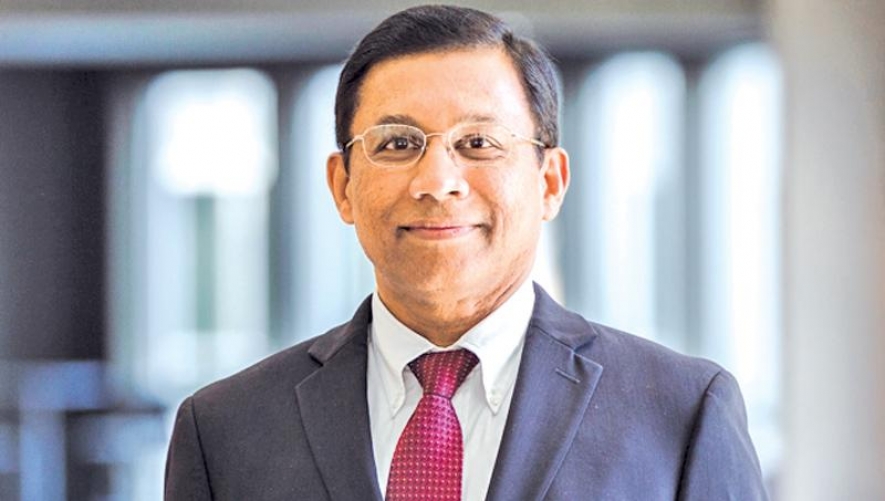The current government is in the process of looking for a new investor to revive the entity. Borrowing from State banks to keep enterprises going is not a solution. What the national carrier has been doing is precisely this and now it is technically bankrupt.It has too many employees and added to that is being poorly managed.
Prof. Samarakoon said since 2015 we have had too many vision statements to drive the economy. Most of them were without understanding the ground condition and where we want to be as a country. The bottom line is that we lack a pragmatic economic policy framework to address issues of the country. When it comes to economic policy making and implementation there are multiple ministries and institutions entrusted with the same task which leads conflict of views, to lack of coordination and policy inconsistency.
Inconsistency in policy sends mix signals to investors whom the country needs urgently. We need to encourage private capital investments. We will not be able to achieve beyond 4-5percet economic growth unless we bring in economic policy reforms, a management and implementation system and reduce the policy uncertainty .
Having a unified policy framework is vital. This requires handing over economic decision making mostly to professionals through a proper policy making system instead of ad hoc measures which are politically motivated. They should be long term sustainable and feasible. If we do not get this right fast we will be in a precarious position being squeezed with growing debt.
We will not be able to attract Foreign Direct Investment if we do not get our economic policies right which would result in lower investments and exports.Sri Lanka’s Foreign Direct Investment increased from around US $ 802 million in 2016 to US$ 1.63 billion last year , the highest to-date. Merchandised exports increased to US$ 11.4 billion last year from two consecutive years of low income. The previous high was US$ 11. 1 billion in 2014.
If we cannot change our economic growth path to achieve at least 5-10 percent constantly for at least a decade our debts will be unsustainable, fiscal position will continue to be weak and the problems of society will go unsolved.
Financial markets are crucial for capital formation and without policy consistency it is difficult for the country to increase the breath and depth of capital markets. For this there needs to be public enterprise reforms, listing more commercially oriented public enterprises and pension reforms.
Sri Lanka has the potential to be at a better position in terms of economic growth bringing prosperity to the country, said Prof. Lalith Samarakoon, Secretary General and Chief Economist of the National Economic Council (NEC) tasked to strengthen the economy. He said what the country needs is a unified economic policy and management framework that could address macro economic issues such as the high debt burden, high incidents of taxation, loss making public enterprises which is a burden on the Treasury and the escalating cost of living. Sustaining loss making State Owned Enterprises (SOEs) is an added expenditure on the government. SriLankan Airlines and Mihin Lanka are some of the poorly managed and loss incurring enterprises which have turned out to be a burden on the state coffers. The national carrier that had been incurring losses in consecutive years recorded an accumulated loss of around Rs. 22 billion last year. The current government is in the process of looking for a new investor to revive the entity. Borrowing from State banks to keep enterprises going is not a solution. What the national carrier has been doing is precisely this and now it is technically bankrupt. It has too many employees and added to that is being poorly managed.
Prof. Samarakoon said since 2015 we have had too many vision statements to drive the economy. Most of them were without understanding the ground condition and where we want to be as a country. The bottom line is that we lack a pragmatic economic policy framework to address issues of the country. When it comes to economic policy making and implementation there are multiple ministries and institutions entrusted with the same task which leads conflict of views, to lack of coordination and policy inconsistency.
Inconsistency in policy sends mix signals to investors whom the country needs urgently. We need to encourage private capital investments. We will not be able to achieve beyond 4-5percet economic growth unless we bring in economic policy reforms, a management and implementation system and reduce the policy uncertainty.
Having a unified policy framework is vital. This requires handing over economic decision making mostly to professionals through a proper policy making system instead of ad hoc measures which are politically motivated. They should be long term sustainable and feasible. If we do not get this right fast we will be in a precarious position being squeezed with growing debt.
We will not be able to attract Foreign Direct Investment if we do not get our economic policies right which would result in lower investments and exports.
Sri Lanka’s Foreign Direct Investment increased from around US $ 802 million in 2016 to US$ 1.63 billion last year , the highest to-date. Merchandised exports increased to US$ 11.4 billion last year from two consecutive years of low income. The previous high was US$ 11. 1 billion in 2014.
If we cannot change our economic growth path to achieve at least 5-10 percent constantly for at least a decade our debts will be unsustainable, fiscal position will continue to be weak and the problems of society will go unsolved.
Financial markets are crucial for capital formation and without policy consistency it is difficult for the country to increase the breath and depth of capital markets. For this there needs to be public enterprise reforms, listing more commercially oriented public enterprises and pension reforms.



















